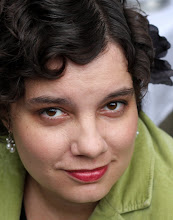
Book Review: How Proust Can Change Your Life
Review by Brent
Book by Alain de Button
Having never read a word written by Marcel Proust, it may have seemed a strange choice to read a book about his book(s). What's more, there seems to be a cottage industry in writing books with the name Proust in the title. There's Proust & the Squid; Proust was a Neuroscientist and probably others. (Plus Steve Carrell as a Proust scholar in the movie Little Miss Sunshine.)
But this book by Alain de Botton seems to have been first out of the gate, and it's not a "Proust And Something" book, it's just about Marcel and his novel. I bought it impulsively after reading the opening in the bookstore because I thought it was so well written. And I stick by that judgment even though the rest of the book slowed down for me. De Botton writes engagingly and humorously about Proust's life and also illustrates life lessons using characters from In Search of Lost Time. But, unsurprisingly, I feel that I would have gotten more out of the book if I'd read the source material. The chapters claim to tell you "How to Love Life Today" or "How to Take Your Time" or "How to be Happy in Love." De Botton takes each of these themes and shows us what Proust had to say about it in his novel and how he succeeded or failed at doing the same in real life. It would all be rather tedious in the hands of a boring author, but de Botton is fun to read and you feel a bit like your sitting in his kitchen having a nice book club with him, except you haven't read the book so you're faking it a bit and nodding politely.
The opening chapter, "How to Love Life Today," is wonderful. It tells the story of a French newspaper that asked a number of famous authors what they would do if a meteor were headed to Earth that would soon end us all. Proust's response is that such a thing would be wonderful because we all delay and put off life with the sense that we have all this time. If we knew our end was imminent wouldn't we rush off to do all those things we mean to but haven't gotten around to. Take that trip, kiss that girl, do that one thing you always wanted. This isn't a surprising response, and de Botton points out that Proust wasn't a particularly adventurous fellow and didn't much take his own advice. But that doesn't mean we shouldn't. Here's what de Button has to say about it:
Feeling suddenly attached to life when we realize the imminence of death suggests that it was perhaps not life itself which we had lost the taste for so long as there was no end in sight, but our quotidian version of it, that our dissatisfactions were more the result of a certain way of living than anything irrevocably morose about human experience. Having surrendered the customary belief in our own immortality, we would then be reminded of a host of untried possibilities lurking beneath the surface of an apparently undesirable, apparently eternal existence.
However, if due acknowledgment of our mortality encourages us to re-evaluate our priorities, we may ask what these priorities should be. We might only have been living half a life before we faced up to the implications of death, but what exactly does a whole life consist of? Simple recognition of our inevitable demise does not guarantee that we will latch on to any sensible answers when it comes to filling in what remains of the diary. Panicked by the ticking of the clock, we may resort to some spectacular follies.
Of course, de Button's book is an attempt to draw lessons from Proust to help us avoid those follies and it's worth the read.




1 comment:
Nice brief and this post helped me alot in my college assignement. Thanks you on your information.
Post a Comment